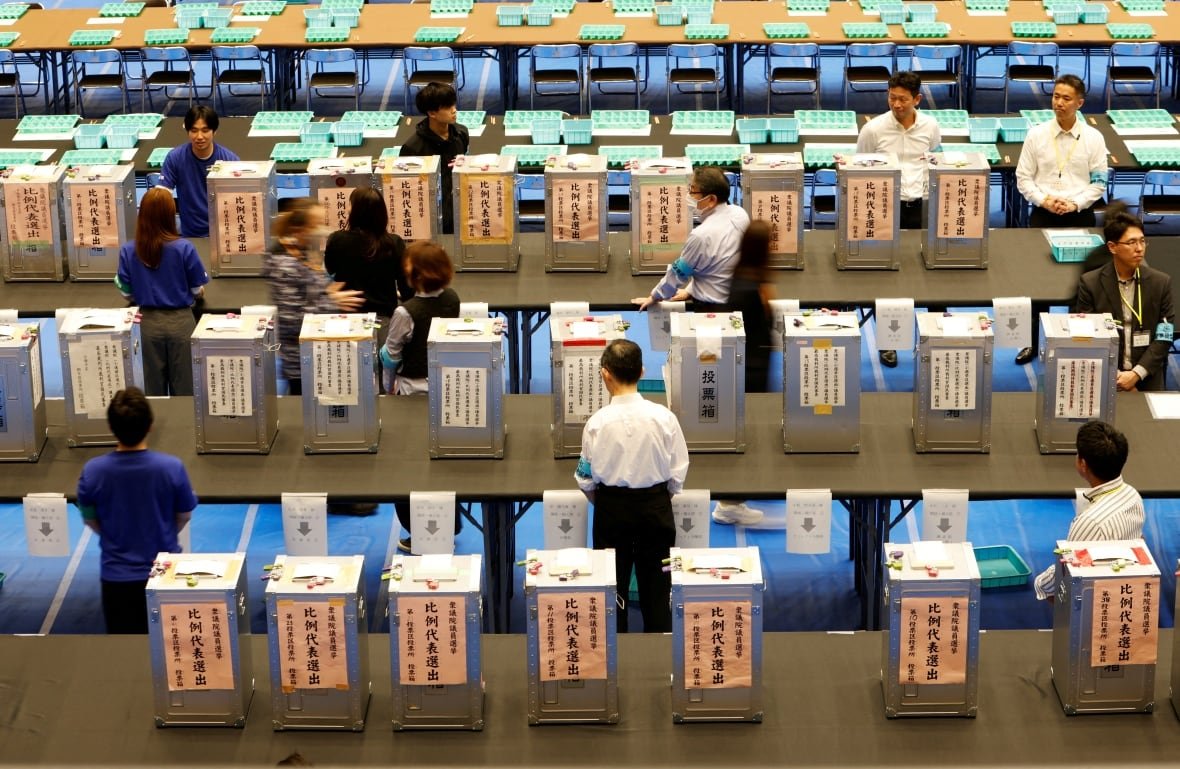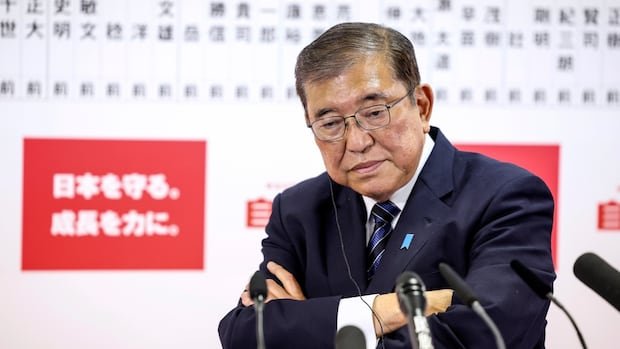The makeup of Japan’s future government was in flux on Monday after voters punished Prime Minister Shigeru Ishiba’s scandal-tainted coalition in a weekend snap election, leaving no party with a clear mandate to lead the world’s fourth-largest economy.
The uncertainty sent the yen currency to a three-month low as analysts prepared for days, or possibly weeks, of political wrangling to form a government and potentially a change of leader.
That comes as Japan faces economic headwinds, a tense security situation fuelled by an assertive China and nuclear-armed North Korea, and a week before U.S. voters head to the polls in another unpredictable election.
“We cannot allow not even a moment of stagnation as we face very difficult situations both in our security and economic environments,” Ishiba said at a news conference on Monday, pledging to continue as premier.
Ishiba’s Liberal Democratic Party (LDP) and its junior coalition partner Komeito took 215 seats in the lower house of parliament, down from 279, as voters punished the incumbents over a funding scandal and a cost-of-living crunch. Two cabinet ministers and Komeito’s leader, Keiichi Ishii, lost their seats.
Support from smaller parties, such as the Democratic Party for the People (DPP) or the Japan Innovation Party (JIP), which won 28 and 38 seats respectively, could now be key for the LDP.
The biggest winner of the night, the main opposition Constitutional Democratic Party of Japan (CDPJ), had 148 seats, up from 98 previously, but also still well short of the 233 majority.
DPP chief Yuichiro Tamaki and JIP leader Nobuyuki Baba have both said they would rule out joining the coalition but are open to ad hoc co-operation on certain issues.
Ishiba echoed that sentiment, saying “at this moment in time, we are not anticipating a coalition” with other opposition parties. The LDP would hold discussions with other parties and possibly take on some of their policy ideas, he added.
Record number of female legislators
A vote on who will take the premiership may be held in a special parliamentary session on Nov. 11, multiple ruling coalition sources told Kyodo News on Monday.
There remains uncertainty over whether Ishiba — who became premier less than a month ago — can survive after the drubbing. Smaller parties also made gains and their role in negotiations could prove key.
“It seems unlikely that he [Ishiba] will survive to lead a new government as prime minister … though it is possible he could stay on as caretaker,” said Tobias Harris, founder of Japan Foresight, a political risk advisory firm.

CDPJ leader Yoshihiko Noda has said he would work with other parties to try and oust the incumbents, though analysts see this as a more remote possibility.
The LDP has ruled Japan for almost all of its post-war history and the result marked its worst election since it briefly lost power in 2009 to a precursor of the CDPJ.
Ishiba, picked in a close-fought race to lead the LDP late last month, called the election a year before it was due in an effort to secure a public mandate.
His initial ratings suggested he may be able to capitalize on his personal popularity, but like his predecessor Fumio Kishida he was undone by resentment over his handling of a scandal involving unrecorded donations to LDP lawmakers.
In one bright spot, a record 73 women were elected into Japan’s male-dominated parliament, surpassing 54 at the 2009 election.














